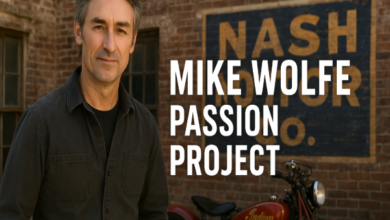Urge Forcefully: The Powerful Phrase Driving Modern Advocacy and Media Influence
Understanding How 'Urge Forcefully' Shapes Public Discourse and Decision-Making in the Digital Era

In an era defined by rapid digital communication and an overwhelming flood of content, the phrase “urge forcefully” has emerged as a powerful tool for leaders, media outlets, and advocacy groups seeking to shape public opinion and push for decisive action. Frequently seen in influential platforms such as The New York Times, this phrase encapsulates a form of rhetoric that combines strong emotional appeal with strategic persuasion. It is more than just language—it represents a method of influence that has become central to modern journalism, political discourse, and social movements.
The Rise of “Urge Forcefully” in Modern Language
Language evolves with society, and “urge forcefully” is a testament to how powerful words can influence people en masse. In its simplest form, to urge forcefully means to push for an idea or action with great intensity, conviction, and persistence. It transcends casual suggestion and enters the realm of passionate advocacy. This phrase has grown in popularity because it speaks directly to the emotions, compelling audiences to act, react, or reconsider their stance.
In recent years, this phrase has surged in media usage. Especially in political reporting, writers often use “urge forcefully” to convey the gravity of a leader’s appeal. Whether it’s a president advocating for climate action or a civil rights group demanding justice, this phrase signals an urgent and unwavering call for change.
The Role of Media: How The New York Times Utilizes “Urge Forcefully”
The New York Times, as one of the most respected news organizations globally, has often used the phrase “urge forcefully” to emphasize pivotal moments in public discourse. The newspaper uses it to highlight statements or demands that go beyond standard political rhetoric. These instances are not just about making a point—they are about mobilizing action.
For example, headlines or reports that state, “Lawmakers urge forcefully for gun control reforms” immediately signal to readers the intensity of the message and the weight behind it. The word choice reflects urgency, authority, and the critical need for public attention. In this way, “urge forcefully” becomes not only a description but a call to awareness for the reader.
Psychological Impact: Why the Phrase Resonates
The power of “urge forcefully” lies in its psychological influence. It triggers a response that blends urgency with a moral or ethical push. This kind of phrasing often compels people to pause, reflect, and in many cases, take action.
From a cognitive psychology perspective, strongly worded phrases can activate emotional centers in the brain, particularly when combined with current events that already carry emotional weight. The result is heightened attention, increased recall, and a stronger likelihood of behavioral response. That’s why advertisers, political campaigners, and journalists alike frequently use such phrases to maximize impact.
Political Power: A Tool for Advocacy and Change
“Urge forcefully” is not merely a rhetorical flourish; it is a strategic move often used in political communications. Advocacy groups, political parties, and leaders employ it to align their messaging with broader movements. It transforms policy requests into moral imperatives.
Consider the phrases used during the COVID-19 pandemic. Leaders around the world urged forcefully for mask mandates, vaccinations, and lockdowns. The language wasn’t accidental. It was designed to communicate necessity, non-negotiability, and the collective responsibility of society.
This technique also appears during elections, protests, and legislative debates. When movements urge forcefully for voter rights or environmental reform, they are framing their message as both urgent and ethically right—a powerful combination.
The Digital Age: How Social Media Amplifies the Message
Social media platforms have added rocket fuel to the phrase “urge forcefully.” Tweets, reels, posts, and viral videos often condense strong calls to action into a few seconds or lines of text. In this environment, “urge forcefully” becomes a digital megaphone, cutting through noise with emotional clarity.
Hashtags like #ActNow, #ClimateCrisis, or #JusticeReform are digital cousins to the phrase. They are concise, urgent, and packed with meaning. When influencers, activists, or celebrities use this kind of language, it spreads rapidly, encouraging mass participation.
Furthermore, platforms like Twitter and Instagram thrive on emotionally charged content. Posts that include passionate appeals tend to receive more engagement, shares, and visibility. This feedback loop further entrenches the use of forceful urging in digital communications.
The Ethics of Using Urgent Language
While “urge forcefully” is effective, it also raises ethical questions. Is it manipulative? Does it pressure people unfairly? These are important considerations, especially in journalism and political communication.
There is a fine line between passionate advocacy and coercion. Ethical communicators strive to inform and motivate without misleading or emotionally exploiting their audience. Transparency, evidence-based messaging, and respect for differing opinions help maintain this balance.
When used responsibly, however, urging forcefully can be a moral duty—particularly when lives, rights, or justice are at stake. In such contexts, toning down the message could mean underplaying serious issues.
Historical Precedents: Powerful Appeals in Past Movements
History is filled with moments where leaders and movements have urged forcefully for change. Consider Martin Luther King Jr.’s speeches, which passionately called for civil rights reforms. Or Winston Churchill’s wartime addresses, urging citizens to remain resilient. These moments were not marked by passive suggestion but by assertive, emotional appeals that moved nations.
Even in ancient history, philosophers and political figures recognized the importance of compelling speech. Aristotle’s concept of rhetoric—ethos, pathos, and logos—demonstrates how persuasive language has always been crucial to influencing public behavior.
Educational Institutions and Urging Responsibility
Beyond politics and media, educational institutions also adopt the “urge forcefully” approach when addressing critical societal concerns. Universities may urge students to participate in democratic processes or to take stands against social injustice. The goal is to instill a sense of urgency and responsibility in the next generation of thinkers and leaders.
These appeals often appear in public statements, campus-wide emails, or speaker events. They reinforce the idea that students are not passive recipients of knowledge but active contributors to societal change.
Final Thoughts: The Lasting Influence of “Urge Forcefully”
As language continues to evolve, the phrase “urge forcefully” will likely remain a staple in the vocabulary of influence. Its ability to cut through ambiguity and stir people into action ensures its continued relevance. Whether in political arenas, media narratives, or social campaigns, it serves as a linguistic spark—igniting awareness, debate, and, often, transformation.
In a world saturated with information and competing voices, the words we choose matter more than ever. “Urge forcefully” is a reminder that language is not just about communication. It’s about impact. When used thoughtfully and ethically, it has the potential to shape minds, move hearts, and make history.



